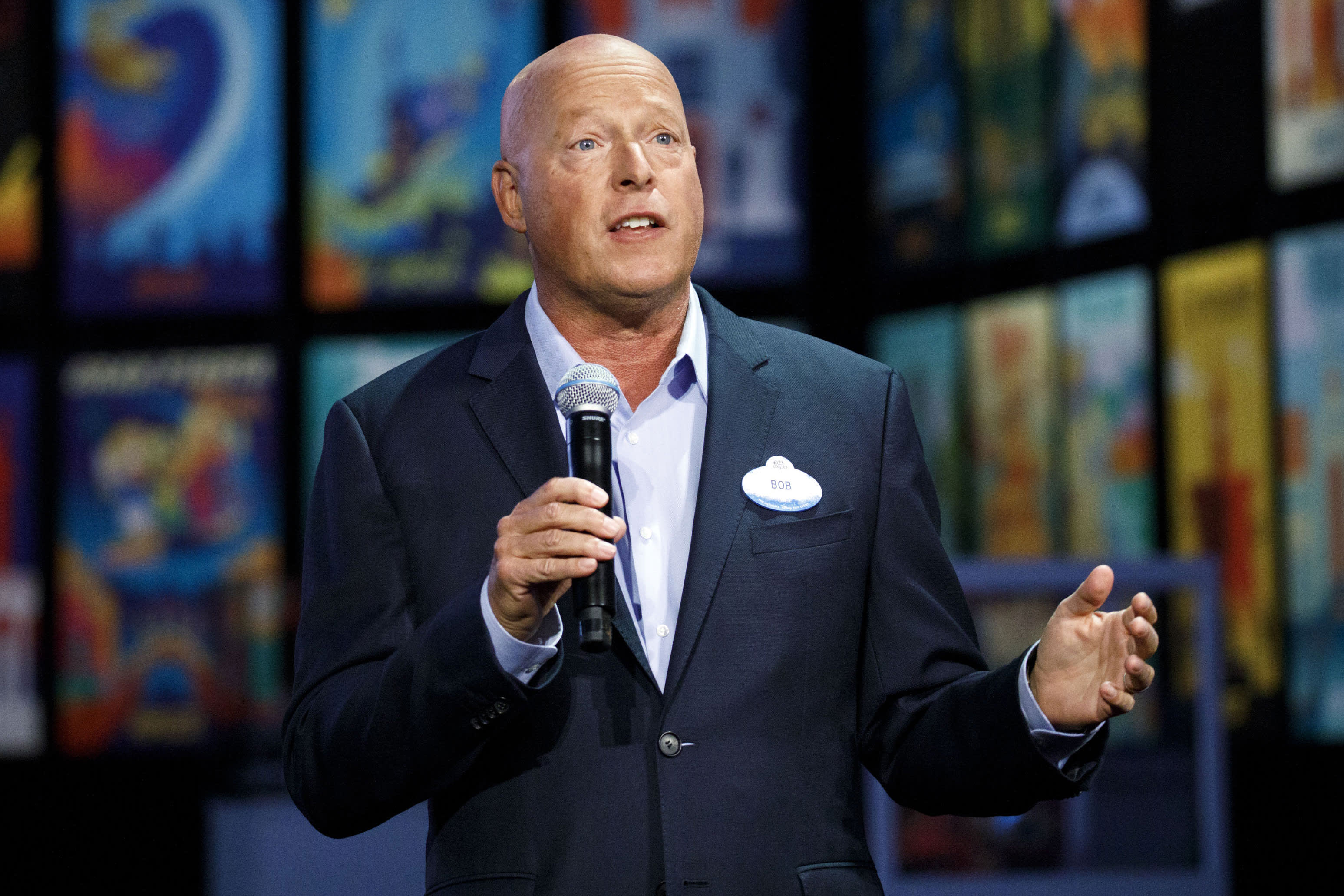
Disney reported earnings for its fiscal first quarter Wednesday that beat analyst estimates on earnings per share and revenue.
The stock popped about 8% in extended trading on the news.
Here are the results.
- Earnings per share: $1.06 adj. vs 63 cents expected, according to a Refinitiv survey of analysts
- Revenue: $21.82 billion vs $20.91 billion expected, according to Refinitiv
- Disney+ total subscriptions: 129.8 million vs 125.75 million expected, according to StreetAccount
Strong streaming numbers
Disney+ subscriptions beat estimates, even as executives previously said they expect subscriber growth for Disney+ to be stronger in the second half of the year compared to the first, with original content being released on the platform in Q4 2022.
The subscriber number includes nearly 12 million Disney+ subscriptions added in the first quarter. The service also saw average revenue per user (ARPU) in the U.S. and Canada grow to $6.68 per month from $5.80 a year ago.
CFO Christine McCarthy said on the company’s earnings call that Disney expects to spend significantly on streaming in the second quarter. She said the company expects programing and production expenses for the direct to consumer business to increase by about $800 million to $1 billion, including programing fees for Hulu live. They expect those expenses for linear to increase by about $500 million, in part due to pandemic-related timing shifts.
McCarthy said the company is not at a point of steady expenses for Disney+, but said they “expect to have made significant progress by fiscal 2023.”
In an interview with CNBC’s Julia Boorstin, CEO Bob Chapek said Disney is bidding for NFL Sunday Ticket, diving even deeper into streaming.
Though Netflix shares fell during its most recent report when it showed slowing subscriber growth, Chapek reiterated guidance of 230 million to 260 million Disney+ subscribers by 2024.
On the company’s call with analysts, Chapek indicated releases on Disney+ could continue to be an important distribution channel for its original content.
“We do not subscribe to the belief that theatrical distribution is the only way to build a Disney franchise,” he said, pointing to the success of its recent hit, “Encanto.”
Parks business roars back
Disney’s parks, experiences and consumer products division saw revenues reach $7.2 billion during the quarter, double the $3.6 billion it generated in the prior-year quarter. The segment saw operating results jump to $2.5 billion compared to a loss of $100 million in the same period last year.
Disney said the growth in revenue came as more guests attended its theme parks, stayed in its branded hotels and booked cruises.
McCarthy noted that Disney’s domestic parks, particularly its Florida-based locations, have yet to see a significant return in ticket sales from international travelers, which pre-pandemic accounted for 18% to 20% of guests.
The company’s consumer products business saw revenue fall 8.5% to $1.5 billion following the closure of a substantial portion of its Disney-branded retail stores during the second half of 2021.
During the most recent quarter, Disney’s domestic parks operated with fewer Covid-19 capacity restrictions. However, international locations continue to be impacted by mandatory capacity and travel restrictions, the company said.
Additionally, although Disney’s television and film productions have resumed, it is still experiencing disruptions in its pipeline. While the studio’s theatrical releases were among the top performing films of the year, the domestic box office still has not fully recovered from the pandemic. Income from Disney’s co-production of the Marvel Cinematic Universe film “Spider-Man: No Way Home” with Sony offset losses on other titles released during the quarter, which were unable to overcome significant marketing and production costs.
WATCH: Streaming platforms will have to spend billions to maintain status, says Evercore’s Mahaney




















